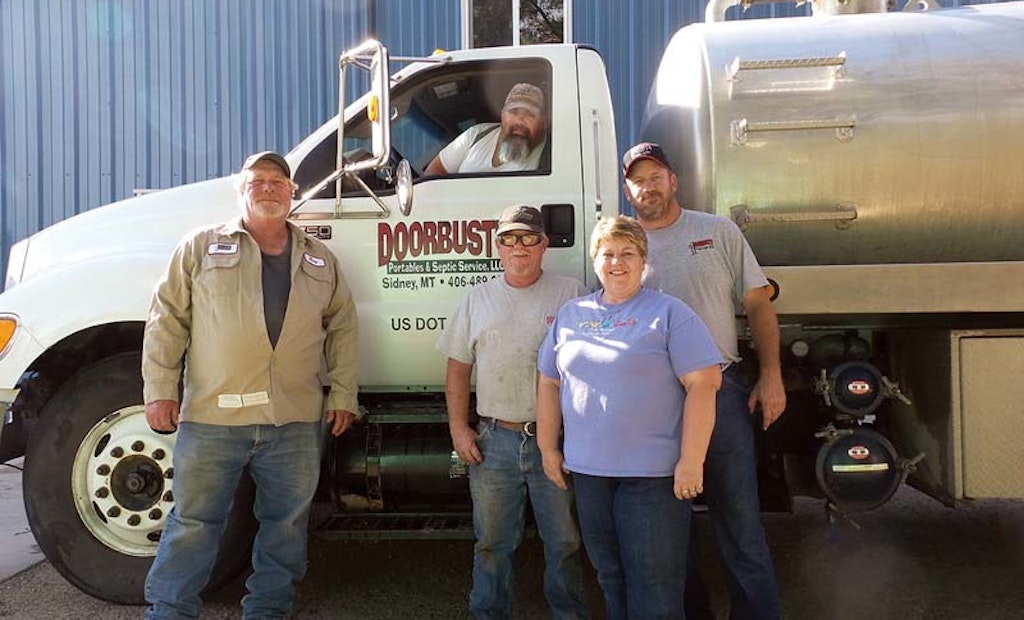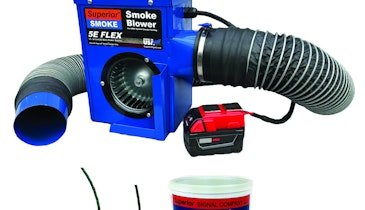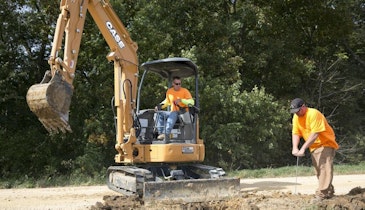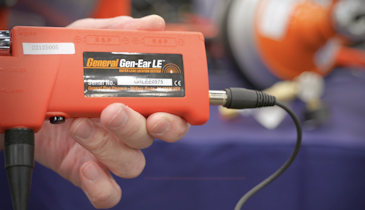
Interested in Portable Sanitation?
Get Portable Sanitation articles, news and videos right in your inbox! Sign up now.
Portable Sanitation + Get AlertsPublic recognition for a job well done is a rare and elusive thing in the pumping industry. Sure, you might get a thank-you or a pat on the back from a satisfied customer now and then, and that makes your day. But that’s typically the extent of the praise heaped upon someone who performs a dirty job.
So when a septic pumper is called out for excellent service to his customers and the environment, I sit up and take notice. That’s just what happened when Blaine Rogers, owner of Doorbust’n Portables & Septic Service in Sidney, Montana, was given the Friend of Public Health Award recently in Richland County, Montana.
The county’s environmental health office nominated Rogers for the annual award for his work identifying failing septic systems and working with customers and local sanitarians to repair or replace them. Stephanie Ler and Heather Luinstra said Rogers’ efforts have helped protect clean-water sources and improve the outlook for decentralized wastewater in an area affected by massive development from the nearby Bakken oil shale.
DOING THE RIGHT THINGS
“Blaine is innovative with his business practices, while keeping environmental health as a top priority,” Ler and Luinstra wrote in the nomination. “On more than one occasion, we have received calls from Blaine reporting a septic system that was installed incorrectly or without a permit, systems that needed to be replaced, systems that were actively putting the public at risk due to discharge into creeks and ditches, and overloaded systems.
“Generally, environmental health does not receive much attention, as by no means is the work we do glamorous, and most lay-citizens are not aware of our work. We believe Blaine has well surpassed his responsibilities as a licensed pumper and has served as a true asset to our office and Richland County.”
Reached by phone, Ler and Luinstra explained that Rogers shows a genuine concern for the environment and his customers when he comes across a failing or nonconforming septic system. In one case, they explained how Rogers and his crew worked through a holiday weekend on an emergency call to restore service to a customer whose system had failed and was discharging to a creek. He worked with the county to identify that the customer could tap into a new sewer line, cleaned and abandoned their old system, and made sure they were hooked up immediately.
“Blaine’s responsibility was truly only to pump that system. He didn’t have to have his guys out there all weekend and he didn’t have to call us,” Ler recalled. “He made sure things were done right and an environmental problem was mitigated.”
Luinstra added that Rogers has shown this kind of proactive approach many times over the last several years. “He’s a boots-on-the-ground kind of guy. It’s not within our budget to jump in a vehicle and go tooling around the county looking for problems. If he spots a major issue, he’ll give me a call. He’s pretty dedicated, not only to being a septic pumper, but to protecting the environment and the public.”
NEW TO INDUSTRY
With an award like this and such a great understanding about the role of the industry in public health, you might think Rogers has been a lifelong pumper. But no, he’s just come a long way in a few short years.
Located near the oil boom action surrounding Williston, North Dakota, Rogers, 45, was working in the construction industry and going great guns through the building boom a decade ago. After the construction stalled, he bought out a small pumping company seven years ago with about 70 portable restrooms and 200-300 septic service customers. He enjoyed steady growth, and now has 450 restrooms and 800-900 septic service customers.
From the outset, he recognized the wastewater industry as a great place to be. He enjoys working with customers and onsite contractors and others associated with the industry in his backyard. He’s networked with other pumpers at the WWETT Show in Indianapolis, calling it a “technology circus, especially when you look at where I come from. You go to the county fair here and you see maybe 700 or 800 people. At the show, you have thousands of people waiting to get in the doors.”
Rogers now has a crew of five employees, including three technicians and his wife, Devra Goulart, the company’s office manager. He is able to land-spread septage on his 140-acre property and he maintains a fleet of nine trucks, many outfitted with Progress or FlowMark tanks and carrying Masport pumps. His restrooms come from Satellite Industries and PolyJohn Enterprises.
EDUCATION IS KEY
Rogers estimates he spends half of the workday educating consumers about how their onsite systems work, and says that has to remain a goal based on his observations in the field.
“Back 20 or 30 years ago, around here, installers put a septic system in and never put any access in and collected their money. They’d tap you on the shoulder and say, ‘You’ll never have to worry about this system in your life,’” he said. “Septic systems are the worst-maintained systems in the world. When things are flowing, nobody ever thinks about it. When it backs up, all of the sudden it’s a very important problem.”
In sparsely populated areas, older systems are found sending effluent down a hill into a field or running straight to a creek. Seeing these situations is what prompted Rogers to work regularly with the sanitarians. When he has questions about a customer’s system, he asks the health office if they have drawings or any historical information.
Rogers cooperates with installers in the area; he calls them when he needs an excavator and they call him when they need a pumpout. He also builds solid relationships with his customers, explaining ways they can improve the performance of their onsite systems.
SOURCE OF PRIDE
The public health award is a source of pride for Rogers and makes him feel like he’s doing the right things and representing the industry in a positive way. He says it’s nice to be appreciated for what you do.
“To a point I’m an environmentalist and a conservationist. We’re trying to keep the environment safe and healthy for everybody,” he said. “I got into this business to help people, and we treat every system we suck out like it’s our own. Then you know it’s done right and the system is going to work properly and make everything go much easier for the homeowner.”






